McCabe and Mrs. Miller (1971)
“That man never killed anyone in his life.”
|
Synopsis: |
|
Genres, Themes, Actors, and Directors:
Response to Peary’s Review: Indeed, McCabe is often cited as the ultimate “anti-western”, as it foils the norms of this venerable cinematic genre in every way possible: McCabe is a foolish anti-hero; the town’s buildings (painstakingly hand-constructed in British Columbia by production designer Leon Ericksen and his crew) appear realistic rather than set-like; dirt and grime cover every possible surface; the three prostitutes McCabe “purchases” near the beginning of the film are, to put it mildly, decidedly uncomely; Chinese workers co-exist in a ghetto (and their vile exploitation as “cheap”, “renewable” manpower is duly noted); Mrs. Miller is a drug addict; and while McCabe and Mrs. Miller do become lovers (as expected), their relationship remains mercenary rather than romantic. It’s not until the film’s shoot-out ending that some of the genre’s conventions finally come into play. In addition to its stunning appearance (both Ericksen’s sets and Vilmos Zsigmond’s luminous cinematography are justifiably lauded), McCabe and Mrs. Miller features, as usual in Altman’s films, a host of fine lead and supporting actors. Christie — boasting a broad Cockney accent and frizzy hair — “has never been lovelier” (she deserved her Oscar nomination), and Beatty is convincing as her shaggy-haired partner, who gets by on a combination of gumption and pure dumb luck (it’s Miller who notably possesses the brains of the enterprise). Keith Carradine gives one of his best non-leading performances as a luckless young visitor traveling through town, while William Devane as a lawyer and newcomer Hugh Millais as a heavy rise to the top as well in each of their tiny but memorable roles. Peary reviles Leonard Cohen’s score (he notes that Cohen’s singing “will get on your nerves”), but I think its folksy quality works; and as Peary writes, “at least Altman was trying to be different by using his songs”. P.S. McCabe and Mrs. Miller is a film which sits even better after you’ve had some time to absorb it, and read a few critiques (see below for a handful of links, each of which reveals new and provocative insights) — but keep in mind that nearly every review gives away major spoilers. Redeeming Qualities and Moments:
Must See? Categories
(Listed in 1001 Movies You Must See Before You Die) Links: |
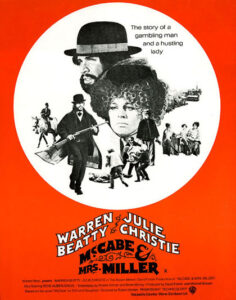
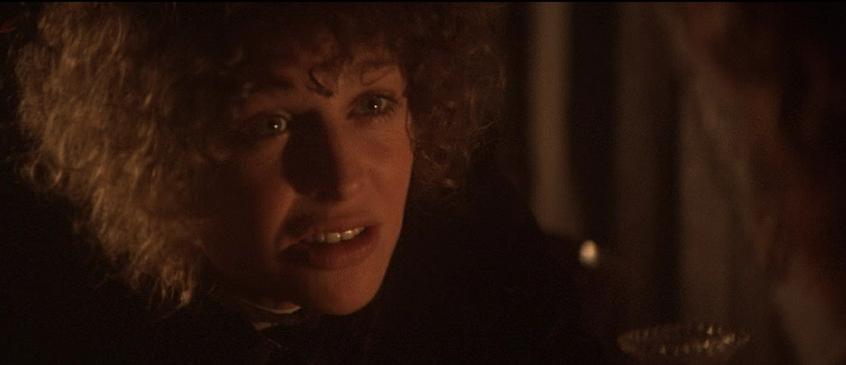
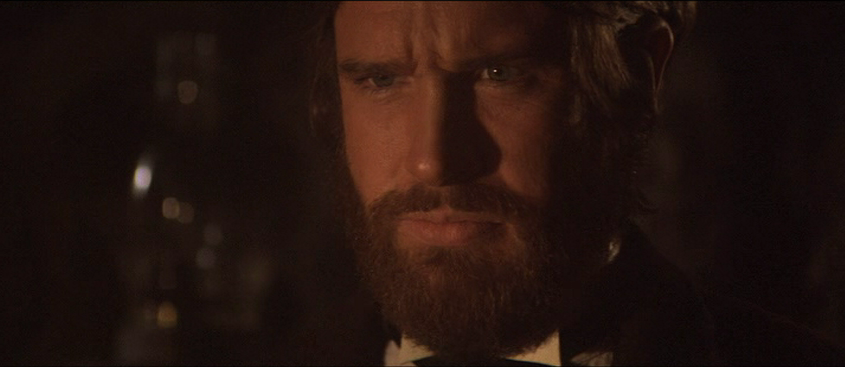
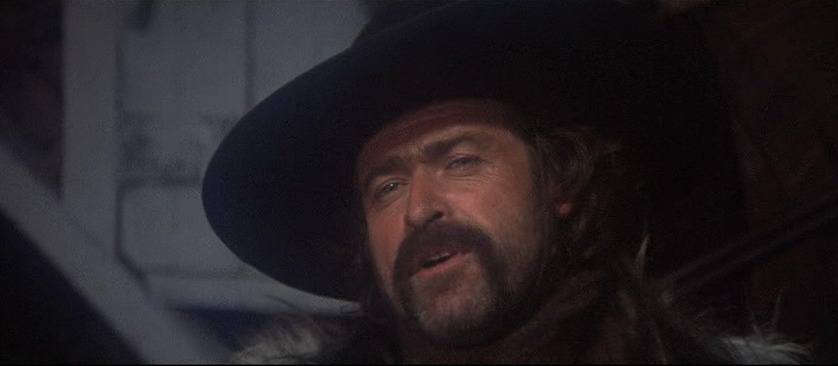
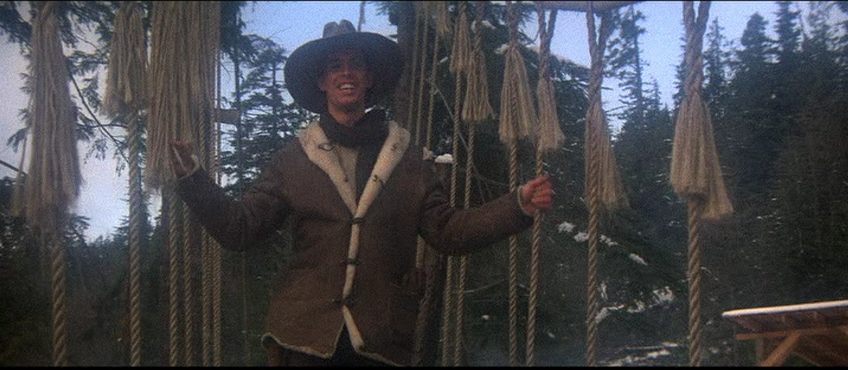
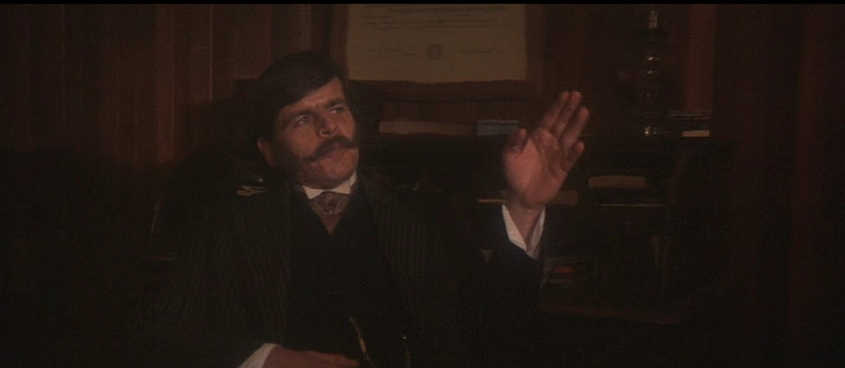
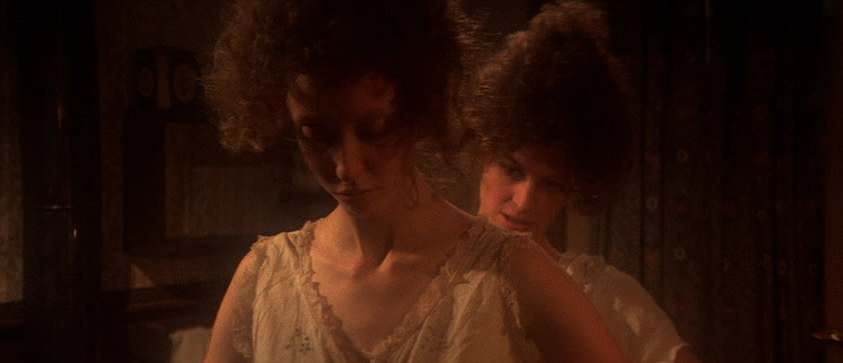
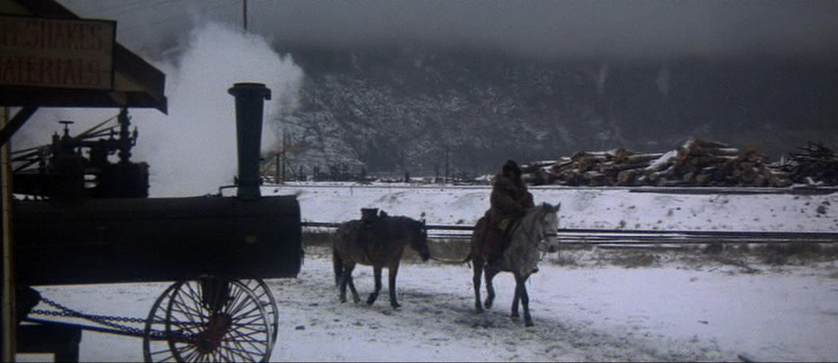
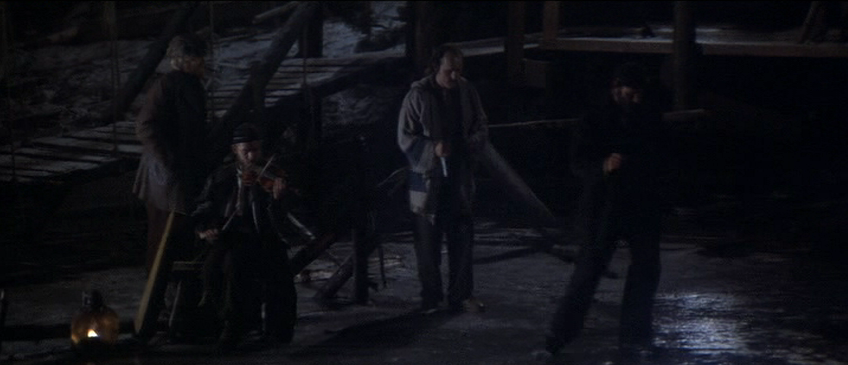
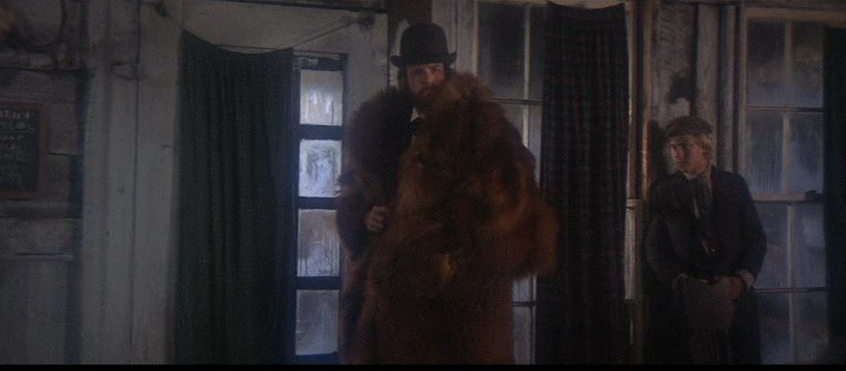

One thought on “McCabe and Mrs. Miller (1971)”
Must-see.
Rather in agreement with all that’s written here – except that, striking as she is in this picture, Christie has looked lovelier in other films (but why quibble?).
This is not among my favorite Altman films but it’s certainly among his best. Having just seen it again, I’ve gained a new respect for it – and, even though it doesn’t resonate with me personally, I recognize that it’s a much tighter work than my memory told me. With an Altman film, there’s always a certain amount of eccentricity running throughout – which, in his lesser work, can overwhelm. (Perhaps he tries to compensate at times if the script he has is faulty.) In ‘M&MM’, even the sections of ‘looseness’ contribute organically to the whole. (For example, if Altman veers from what’s happening with the main characters, it is usually to show the less-interesting but still lively activity on the periphery; but nothing is there for mere filler. Lots of people in this film are shown as having their own little lives.)
I would imagine that Altman could very much relate to the maverick gambler McCabe in some ways – using his own frontier spirit in making his films, being at odds with studios, and being less concerned with “percentages”. But, that aside, one of the things that impresses most about many of Altman’s movies is that he will take us to a completely different (often rather unlikely) landscape each time. And he will uncover the ins-and-outs of each particular world in order to present the truth of its story. (That’s augmented in the script when the no-nonsense Mrs. Miller succinctly details exactly what is involved in the organizing and running of a whorehouse.) One of the major strengths of ‘M&MM’ is that nothing rings false; it’s easy to believe the grim reality of this particular community (one can’t really call it a town) and the people who inhabit it. In that sense, Beatty and Christie do not give “star” performances – they blend in beautifully with the rest of the cast.
I don’t mind Cohen’s songs as used – they don’t intrude and serve as a lulling extension of the film’s overall tone.
As is true of so much of DP Zsigmond’s work, the cinematography is a major contribution to this film’s success. Apparently the studio hated what he did – considering it “too muddy”, I believe. On the one hand, one can say – well, of course, it’s muddy; look where they are! But it’s not muddy at all – by turns, it’s a proper combination of diffuse and stark and feels 100% authentic for the locale.
I agree that this is a film that is likely to need a little time to be absorbed by the viewer. That’s certainly true in my case. ‘M&MM’ does reward with a return visit.